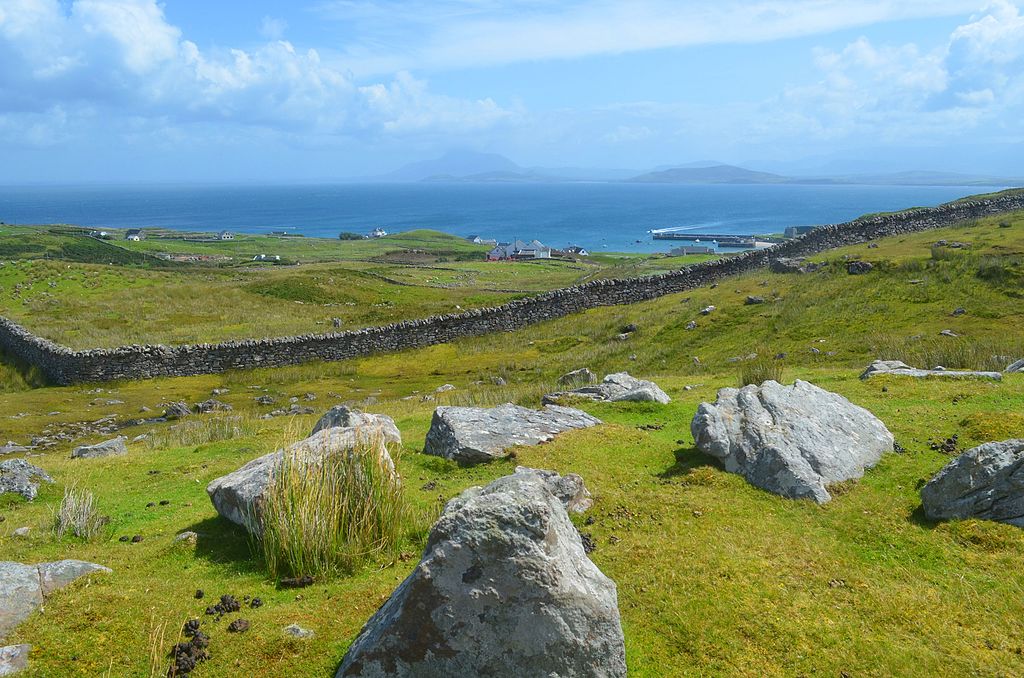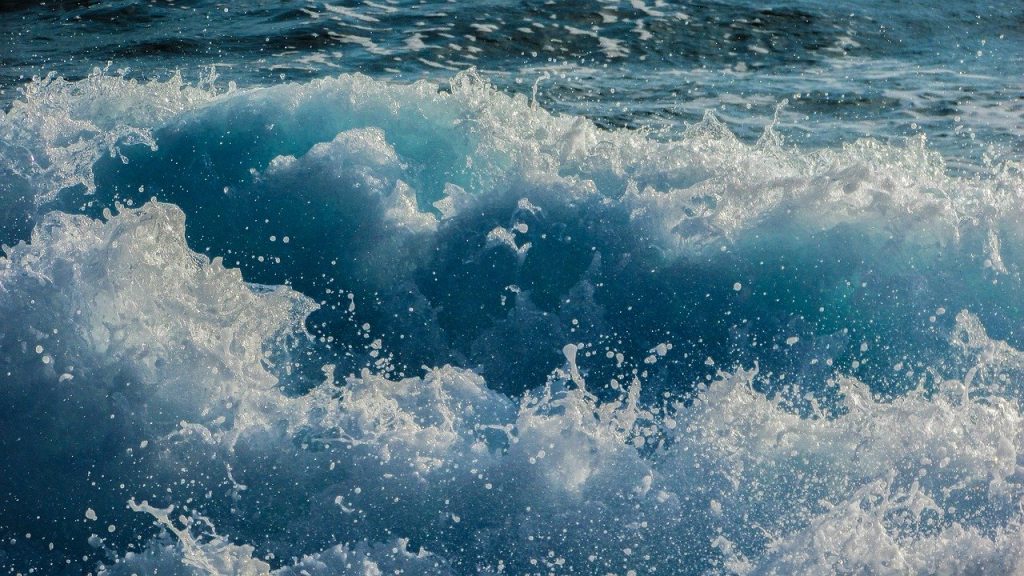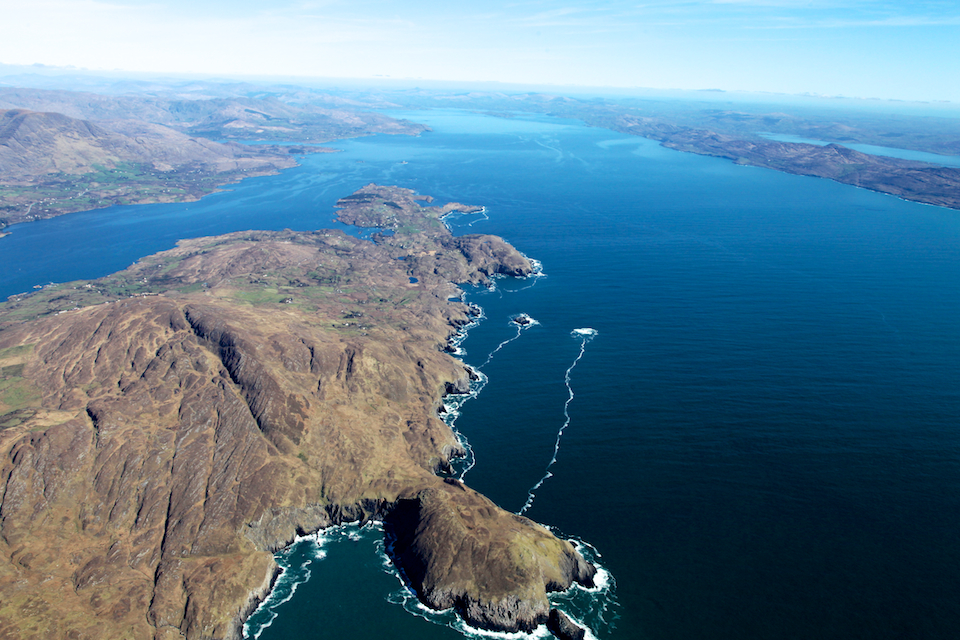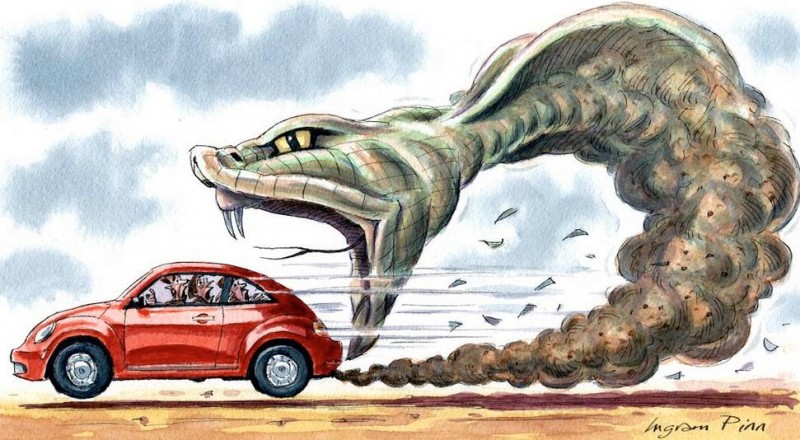‘We are all in the same climate boat in stormy seas’

January 14th, 2020
Yesterday, Storm Brendan swept across Ireland. While far from unusual for us West Coast dwellers to be battered by the gusts, gales and crashing waves of the Atlantic, there is no better time than now to reflect on what we will face should we not act on the climate crisis.
The storm left over 48,000 people without power, but really we got off lightly. According to climate expert Professor Peter Thorne, it is only a matter of time before Ireland experiences a catastrophic storm surge owing to climate-related factors.
The links between climate change and extreme weather events are clearer than the calm skies following an intense storm. Warmer ocean temperatures lead to more powerful storms – an increase in wind speed of between two and 11 per cent is a conservative estimate. As an islander, I’m scared of what this will look like.
On Clare Island we have experienced near daily disruptions to vital ferry sailings, with 12 disruptions over the first 13 days of the new decade alone. The issue here is one that can be told the whole country over – it’s one of neglected, inadequate infrastructure. In our case, the pier on the mainland, the island community’s lifeline, is only usable in the fairest of weather conditions.

Adaptation needs are urgent
This brings into stark relief another major issue that has yet to be addressed – adaptation. While we must do absolutely everything to limit catastrophic climate breakdown, we must also recognize that we are already experiencing significant changes in Ireland that will only escalate without action.
If we don’t put adaptation measures in place urgently, we are putting small communities like mine at risk of falling apart when we start to take the full brunt of this crisis. Storms destroy infrastructure, flood homes, damage roads and fields and kill people. These things cannot be quantified on a balance sheet. Numbers on a page will never be able to represent the human cost of these disasters.
Nonetheless, we still must look at the financial cost of inaction. Last year alone, extreme weather events across the globe caused over $100 billion in damages. This is only set to increase. A recent study in Nature predicts a total economic cost of around $70 trillion if all current governmental pledges are met.
Even if we believe politicians when they say they that they are actually going to enact meaningful climate plans, we are still on track for a total economic cost higher than the GDP of the Unites States, China and the EU combined.
Yesterday, as I braced myself against the 100+km/h gusts and heard the explosive crashing of five meter waves, the sheer travesty of our Government’s policy on energy really struck me. Our policymakers would have you believe that importing Liquefied Natural Gas – almost certain to come from the US fracking fields – will provide energy security.

Unbridled power at our fingertips
One must stop and ask however – does importing one of the world’s most volatile substances via fossil-fuel guzzling container ships travelling across one of the world’s roughest oceans sound like a good plan for energy security?
Never mind the ethical ramifications associated with fracking, the dire consequences posed by methane emissions and the sheer hypocrisy of the continued use of fossil fuels when all evidence points to the need for their phase out, shows that the state’s LNG plan is just plain and simple bad policy.
What we need instead is substantial investment in renewables. Ships can’t move in weather like this, but there is no shortage of wind and certainly no shortage of wave power as seen by the torrent that battered our island this week.
Ireland is one of the best placed countries in the world to build offshore wind according to Robert Howarth, one of the world’s leading energy experts, who presented at the Joint Oireachtas Committee on Climate Action earlier this year.
We started the year watching in horror as Australia burns. An area of land three times the size of Belgium has been transformed into a post-apocalyptic graveyard covered in ash. The largest peace time evacuation in Australian history is underway right now.
While not receiving as much media attention, parts of the world’s second largest city of Jakarta are five meters underwater. Over 60 people are dead and hundreds of thousands have been displaced.
While Australia and Indonesia are half a world away, we should not delude ourselves into thinking that we are safe just because we live on a small temperate island off the West coast of Europe. We are in uncharted territory for the human race, and all of us will face dire consequences if we do not act. We are all in the same boat in stormy seas.
By Theo Cullen-Mouze

Theo is a 17 year old school striker and climate activist from Clare Island in Co Mayo. He is a founding member of School Strikes 4 Climate Ireland, and has addressed Dail members on several occasions, as well as addressing attendees at COP25 in Madrid alongside Mary Robinson.







